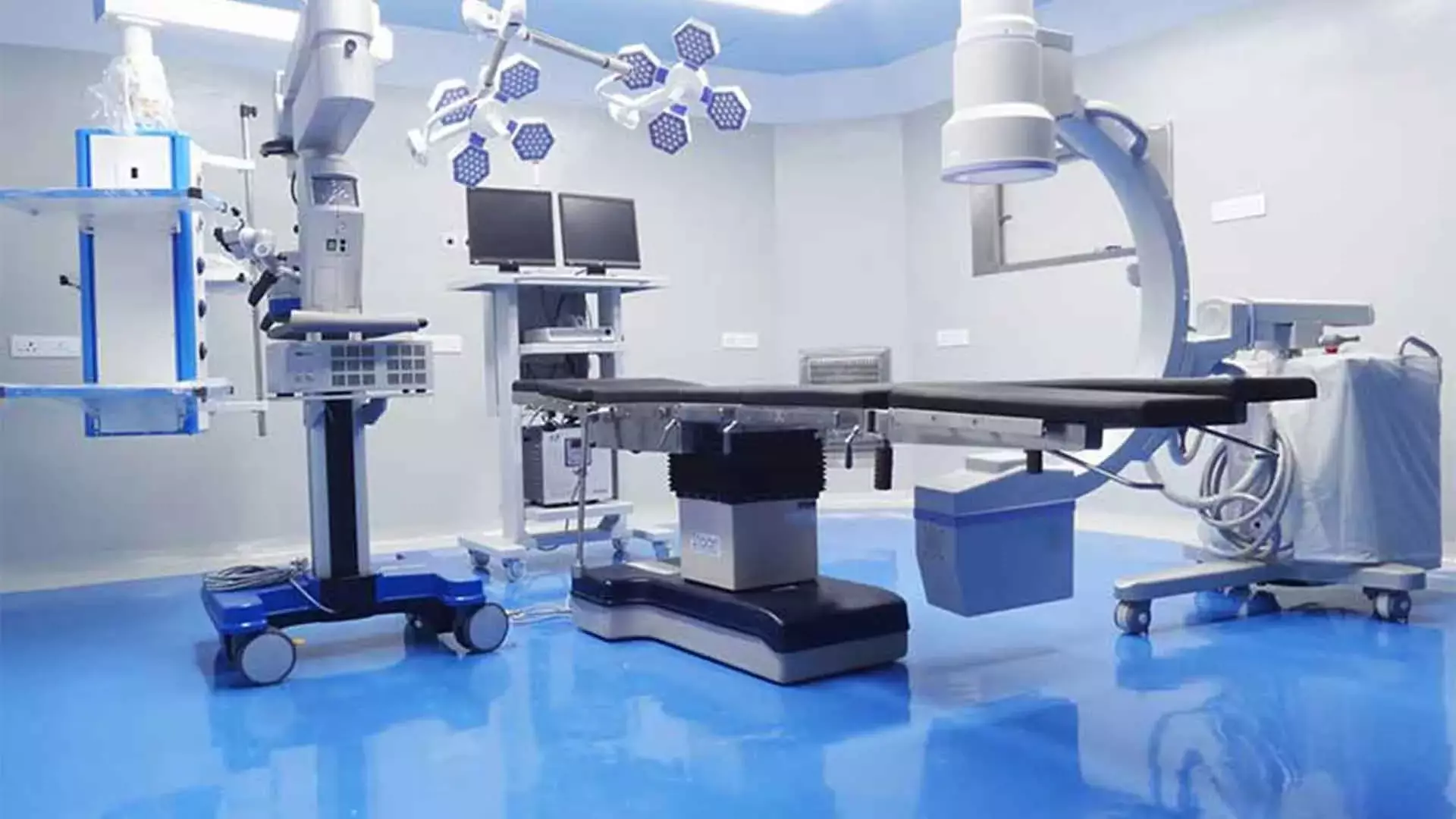Prostatic Artery Embolization: Restoring Prostate Health
- Minimally invasive treatment for Benign Prostatic Hyperplasia (BPH).
- Shrinks the prostate to relieve urinary symptoms and discomfort.
- Preserves sexual function and avoids major surgery.
- Performed under advanced imaging for precise results.
- Quick recovery with significant improvement in quality of life.
Prostatic Artery Embolization: A Minimally Invasive Solution for Enlarged Prostate
Restore comfort, reclaim control – advanced care for BPH at Vanchilingam.
At Vanchilingam Advanced Neurology and Stroke Care, we offer Prostatic Artery Embolization (PAE), a cutting-edge, minimally invasive procedure for managing Benign Prostatic Hyperplasia (BPH). Designed to reduce symptoms caused by an enlarged prostate, PAE provides significant relief without the risks and recovery time of traditional surgery.
What is Prostatic Artery Embolization?
Prostatic Artery Embolization is a safe, non-surgical procedure that treats BPH by reducing blood flow to the prostate. This causes the gland to shrink, relieving pressure on the urinary tract and alleviating bothersome symptoms such as frequent urination or difficulty emptying the bladder.

Who Can Benefit from PAE?
PAE is ideal for individuals experiencing:
- Frequent urination, especially at night.
- Difficulty starting or maintaining urination.
- A weak or interrupted urine stream.
- A feeling of incomplete bladder emptying.
- Symptoms that persist despite medication.
Common Causes of BPH
BPH is a common condition in men over the age of 50 and is often caused by:
- Hormonal Changes: Fluctuations in testosterone levels can enlarge the prostate.
- Aging: Prostate growth is a natural part of aging.
- Genetics: Family history can increase the risk of developing BPH.
Advanced Diagnostics
Accurate diagnosis is essential for effective treatment. At Vanchilingam, we use advanced tools to assess BPH severity:
- Ultrasound: To evaluate prostate size and blood flow.
- MRI or CT Scans: For detailed imaging of the prostate and surrounding structures.
- Uroflowmetry: Measures the strength and flow of urine.
- PSA Blood Test: Rules out other prostate conditions e.g. cancer.
How Prostatic Artery Embolization Works
Minimally Invasive Procedure:
- Performed under local anesthesia with no major incisions.
- A small catheter is guided to the arteries supplying blood to the prostate.
Targeted Embolization:
- Tiny particles are injected to block blood flow to the prostate, causing it to shrink.
Quick Recovery:
- Most patients experience significant symptom relief within days to weeks and can resume normal activities shortly after the procedure.
Why Choose Prostatic Artery Embolization?
- Minimally Invasive: No incisions or prolonged hospitalization required.
- Quick Recovery: Short downtime with fewer complications compared to surgery.
- Preserves Sexual Function: Lower risk of erectile dysfunction or retrograde ejaculation.
- Effective Symptom Relief: Improves urinary flow and reduces urgency.
- Safe and Precise: Performed under advanced imaging for accuracy.
Why Choose Vanchilingam for PAE?
- Experienced Specialists: Our interventional radiologists are skilled in performing PAE with precision.
- Advanced Facilities: Equipped with state-of-the-art imaging and treatment tools.
- Personalized Care: Treatment plans tailored to each patient’s symptoms and needs.
- Comprehensive Support: From diagnosis to follow-up, we guide you every step of the way.
- Patient-Centric Approach: Focused on comfort, safety, and long-term results.
Find Freedom from BPH with PAE
Living with BPH can be challenging, but it doesn’t have to take over your life. At Vanchilingam Advanced Neurology and Stroke Care, our Prostatic Artery Embolization (PAE) provides a modern, minimally invasive solution to alleviate symptoms, improve comfort, and restore your quality of life. Experience effective relief without the need for surgery, so you can focus on what matters most.
Reach out today to learn how PAE can help you regain control and live symptom-free.
Meet the Specialists
Our team of dedicated specialists brings years of expertise and a passion for delivering personalized care.
Real Experiences, Real Results
Discover how Dr. Vanchilingam Advanced Neuro & Stroke Hospital has transformed the lives of our patients. Also hear our specialists talk about the services and solutions we offer for various neurological issues.





OUR SPECIALITY
Acute Stroke Unit
The Acute Stroke Unit is an acute neurological ward providing specialist services for people who have had a new suspected stroke. On the Acute Stroke Unit we provide: Thrombolysis treatment -treatment is started in the Emergency Department and you will have the rest of your Treatment and monitoring on the Acute Stroke Unit
OUR SPECIALITY
Advanced Neuro ICU
A neuro ICU is an Intensive Care Unit which is particularly devoted to a high – quality care of patients with the neurological problems that are life-threatening in nature. The neuro ICU of our hospital is a complete state of the art and a full-fledged one designed to provide almost all sorts of advanced neurological care to the normal patients as well as the patients in the emergency.
OUR SPECIALITY
Advanced Neuro Imaging
Our radiology department is a state of the art department with all the necessary infrastructure that is essential for effectively dealing with the neuro and neurosurgery emergencies at its best. The advanced neuroimaging techniques used by our doctors are as discussed below.
OUR SPECIALITY
Neuro interventional Cath Lab
A neuro-interventional Cath lab in a neurodiagnostic Centre is a specialized catheterization laboratory which has all the necessary diagnostic imaging equipment that is particularly used for the purpose of visualization of the arteries, veins and other vascular malformations of the brain and spinal cord.
OUR SPECIALITY
Neuro-Surgery Operating Room
The neurosurgery operating room of Dr.Vanchilingam Hospital, Neurosurgery Hospital is a fully functional and a state of art one that has the adequate infrastructure for effectively carrying out even the most complicated neuro surgeries with ease.
What is Prostatic Artery Embolization (PAE)?
Prostatic Artery Embolization (PAE) is a minimally invasive, non-surgical procedure that treats Benign Prostatic Hyperplasia (BPH). It works by reducing blood flow to the prostate, causing it to shrink and relieving symptoms such as frequent urination, weak urine flow, and incomplete bladder emptying.
Who is a good candidate for PAE?
PAE is ideal for men suffering from BPH symptoms, including frequent urination (especially at night), difficulty starting or maintaining urination, a weak or interrupted urine stream, or a feeling of incomplete bladder emptying. It is particularly beneficial for those who wish to avoid traditional surgery or have not found relief with medication.
How does PAE compare to traditional prostate surgery?
Unlike traditional surgery, PAE is a minimally invasive procedure performed under local anesthesia without major incisions. It offers a quicker recovery time, lower risk of complications, and preserves sexual function while effectively relieving BPH symptoms.
What are the benefits of Prostatic Artery Embolization?
Some malformations are congenital (present at birth), while others may develop due to:
- Trauma: Injury to the spine can lead to vascular changes.
- Infections or Inflammation: Certain conditions can affect blood vessels in the spine.
- Genetic Factors: Some people may have a predisposition to vascular abnormalities.
How long does it take to recover from PAE?
PAE provides several advantages, including:
- Minimally invasive – No major incisions or prolonged hospital stay.
- Quick recovery – Most patients resume normal activities within days.
- Preserves sexual function – Lower risk of erectile dysfunction or retrograde ejaculation.
- Effective symptom relief – Significant improvement in urinary flow and bladder emptying.
- Safe and precise – Performed under advanced imaging guidance for accuracy.
Is Prostatic Artery Embolization painful?
PAE is performed under local anesthesia, ensuring minimal discomfort. Patients may experience mild cramping or discomfort after the procedure, but this typically resolves within a few days.
How effective is PAE for treating BPH?
Studies and clinical results show that PAE effectively reduces prostate size and alleviates urinary symptoms for the majority of patients. It provides long-term relief while minimizing risks associated with traditional surgery.
Are there any risks or side effects of PAE?
PAE is a generally safe procedure with minimal risks. Some patients may experience mild side effects like temporary urinary discomfort, slight burning sensation, or minor pelvic pain. These effects usually subside within a short period.
How is PAE performed?
PAE is conducted using advanced imaging guidance:
- A small catheter is inserted into an artery, typically through the groin or wrist.
- The catheter is guided to the arteries supplying blood to the prostate.
- Tiny particles are injected to block blood flow to the prostate, leading to its shrinkage and symptom relief.
Why choose Vanchilingam Advanced Neurology and Stroke Care for PAE?
At Vanchilingam, we offer:
- Experienced interventional radiologists specializing in PAE.
- State-of-the-art facilities for precise diagnosis and treatment.
- Personalized care plans tailored to each patient’s needs.
- Comprehensive support from diagnosis through recovery.
How do I schedule a consultation for PAE?
If you are experiencing symptoms of BPH and want to explore PAE as a treatment option, contact Vanchilingam Advanced Neurology and Stroke Care today through the website enquiry/appointment form or call us directly. Our specialists are here to guide you through the process and help restore your quality of life.















